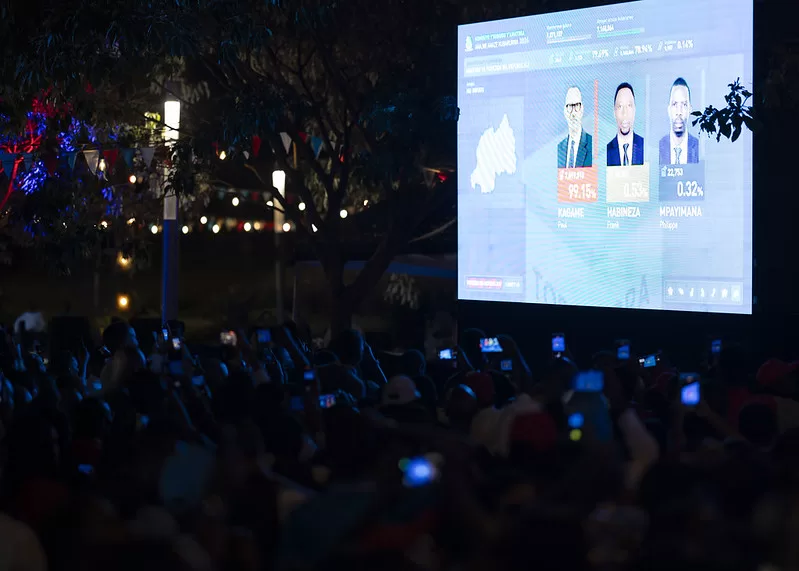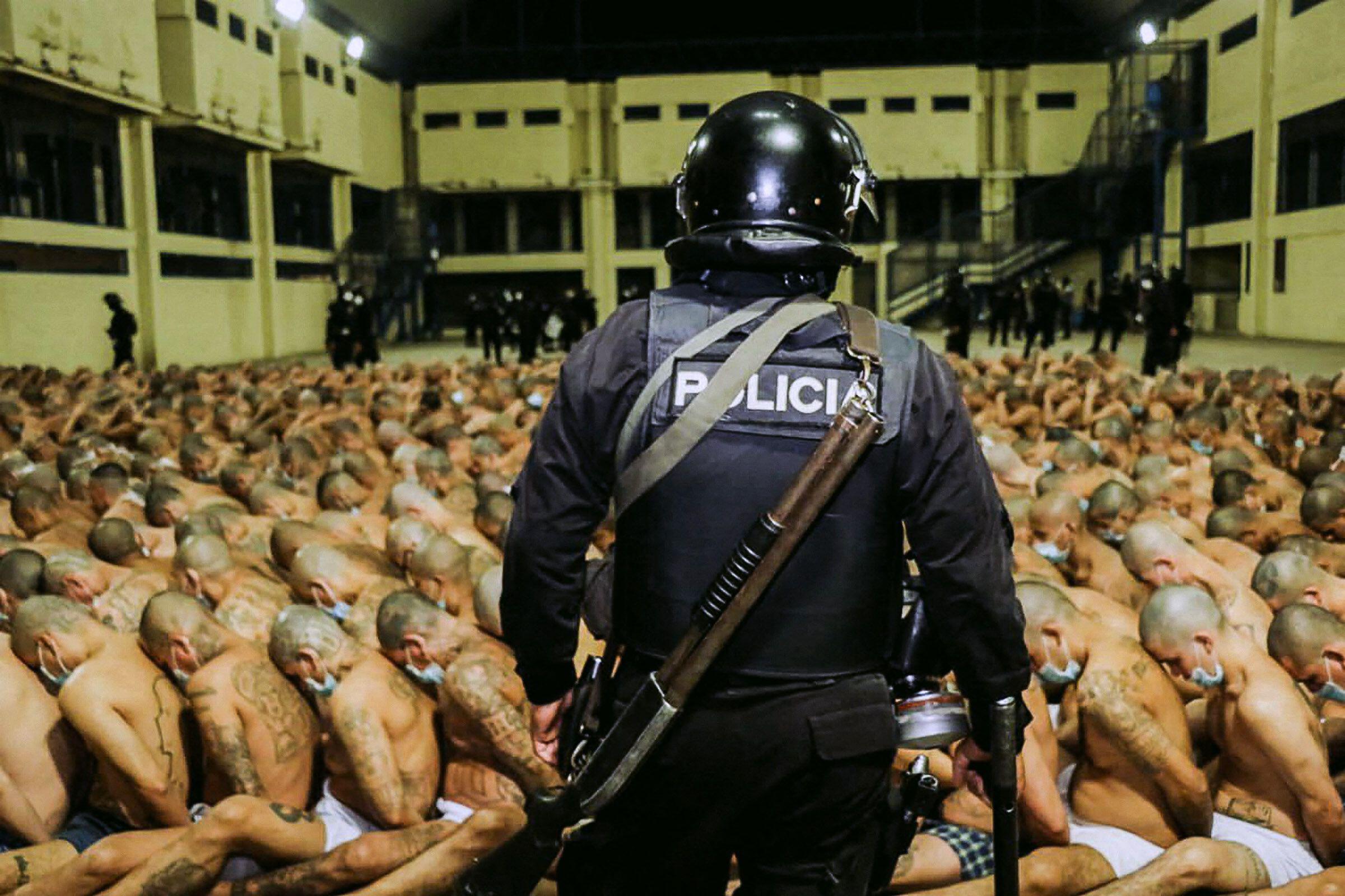Rwanda’s Paul Kagame has won 99.15% of the vote in this week’s presidential poll, a margin of victory so high that even Belarusian dictator Aliaksandr Lukashenka has baulked at claiming such a high figure in his own rigged elections.
Rather than being a vote of confidence, the main reason for Kagame’s overwhelming “victory” was the lack of opposition.
Last month, Rwanda’s opposition leader, Diana Rwigara said that after all the time, work and effort she had put in, she was very disappointed she had been barred from contesting the country’s 15 July presidential election.
Rwigara also failed to run in the 2017 presidential poll as she was charged with inciting insurrection, an accusation levelled years earlier against her late father Assinapol Rwigara, before he died in a suspicious car accident which his family says was an assassination.
“@PaulKagame why won’t you let me run? This is the second time you cheat me out of my right to campaign,” Rwigara posted on social media platform X formerly known as Twitter.
Following Rwanda’s elections on Monday, Kagame’s only opposition were two little known candidates. Rwigara and five others including two of his major challengers, Victoire Ingabire and Bernard Ntaganda, had been barred from the ballot.
Rwanda’s National Electoral Commission said the incumbent got 99.15% of the vote.
Kagame, who was key to a scheme to process asylum seekers arriving in the UK “illegally” – an initiative now scrapped by the new Labour government – has been in power since the end of the country’s genocide in 1994.
Countless critics have been jailed or killed since then. One of them, Hotel Rwanda hero Paul Rusesabagina, known for sheltering hundreds of people during the genocide was jailed for supporting terrorism in 2021 after being arrested while he was travelling internationally. His sentence was later commuted, and he was allowed back to the USA.
In an interview with Index, Jeffrey Smith, the executive director of Vanguard Africa, a non-profit group that works with activists to support free and fair elections, said the election outcome does not reflect the will of the people.
“In Rwanda, there is freedom of expression. But that freedom is limited to expressing support for Paul Kagame and his ruling party — whether coerced or otherwise,” he said.
“These latest so-called ‘election’ results — a sort of performative art perfected by Kigali — clearly establish the Kagame dictatorship as among the most effective and effectively brutal police states of the 21st century.”
It’s a view shared by Ingabire, one of the opposition leaders who was barred from both the 2017 and 2024 elections. Ingabire published an opinion article in May in which she said Rwanda’s election will entrench the persistent suppression of opposition voices.
In January 2010, after 16 years in exile, Ingabire returned to Rwanda with the intention to register her political party and run for president but was arrested and jailed for 15 years. Kagame later pardoned her after international pressure but she has been prevented from leaving the country. There is an international campaign: #CallKagameforVictoire for heads of government around the world to ask Kagame to end Ingabire’s persecution.
“My trial, marred by irregularities and a lack of minimum fair trial standards, ended with a harsh sentence for crimes including ‘genocide ideology’, a controversial offence that has been used to silence dissent,” Ingabire wrote in her opinion article.
Ingabire said the African Court on Human and Peoples’ Rights later ruled in 2017 that her rights to freedom of opinion and expression had been violated, a verdict she says which highlights the broader issues of legal restrictions on speech and the challenges faced by political opposition in Rwanda.
Ingabire said many international observers see Rwanda as an exemplary country as it adeptly orchestrates communication campaigns and disseminates compelling narratives globally showcasing its purported capability to address both domestic and international challenges that include counterterrorism.
The country has also deployed Rwandan soldiers in multinational peacekeeping missions.
“This carefully crafted public image is not reflective of reality,” she said.
In Professor Nic Cheeseman’s book How to Rig an Election, he quotes President Aliaksandr Lukashenka of Belarus saying he ordered his 93 percent 2006 election victory to be changed to around 80 percent because more than 90 percent would not be psychologically well received.
The author, who is professor of democracy and international development at the University of Birmingham, told Index in an interview that Kagame’s margin of victory speaks volumes.
“If Lukashenka, the last dictator of Europe, thinks that winning more than 90% in an election is psychologically implausible, it is pretty clear that 99% tells us as much about President Kagame’s desire for absolute control as it does the wishes of the Rwandan people,” said Professor Cheeseman.
According to Freedom House’s Freedom in the World 2024 report, Kagame’s government has suppressed political dissent through pervasive surveillance, intimidation, arbitrary detention, torture, and renditions or suspected assassinations of exiled dissidents.
“The practical space for free private discussion is limited in part by indications that the government monitors personal communications. Social media are heavily monitored, and the law allows for government hacking of telecommunications networks. Rwandan authorities reportedly use informants to infiltrate civil society, further discouraging citizens from voicing dissent. Individuals have been forcibly disappeared, arrested, detained, and assassinated for expressing their views,” said the report.
Apart from autocratic rule at home, last week the head of the United Nations Organisation Stabilisation Mission in the Democratic Republic of Congo (MONUSCO), accused Rwanda of supporting 23 March Movement (M23) rebels that are committing atrocities in the neighbouring country.
In January, Burundi rebels closed its borders with Rwanda after accusing its neighbour of funding rebel attacks.





